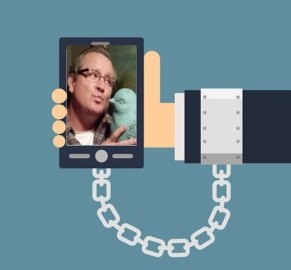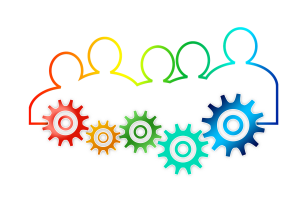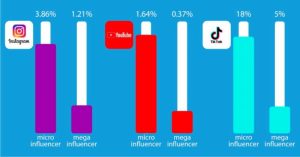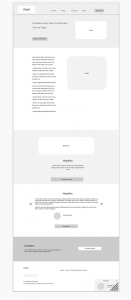
“I can unplug anytime I want,” you think, closing your laptop with a sense of satisfaction. Seconds later, you fish your smartphone out of your pocket and fire up the Facebook mobile app.
Meanwhile, you don’t even hear your child practicing for his piano recital, or your significant other asking what you want for dinner. As you scroll through your Facebook feed, life becomes nothing more than background noise.
A few years back, a post on this blog discussed whether social media addiction was real.
It is.
And in a few moments you will learn how you can tell if you are addicted or not. But first, a few plain facts.
Wired for social media addiction?
Forty percent of young adults—and 21 percent of adults overall—admit to using social media while on the toilet (and those who don’t admit it are probably lying). Why can’t we stay away from social media, even for three minutes?
Multiple studies have reached the same conclusion: social media can become an addiction. We are neurologically wired to seek validation, and interactions such as Facebook Likes and retweets stimulate the reward areas in our brain, giving us a hit of dopamine.
The dopamine high people get from virtual interactions (including texting, emailing, and tweeting) can lead them to spend more and more time online. People have lost their jobs. College students have neglected their studies. In some cases, parents have even let their children die while they browse Facebook or Twitter.
No one likes to think they might be a social media addict, but if your online life is interfering with your actual life, it’s time to ask yourself some hard questions. Could you really go an entire day without checking your social media feeds?
Yeah, me neither.
Do you have a social media addiction?
Do you spend too much time on social media? Let’s start with this simple test.
Click here to see how much time you’ve wasted on Facebook already. I’ve spent more than a month of my life on Facebook. I’m not proud of it (although I wouldn’t necessarily characterize all that time as “wasted”).

But don’t judge yourself too harshly because you feel a compulsion to update your status. Sites like Facebook are designed to “hook” you. They use external triggers (“notifications”) to draw you into the app, then reward you with more notifications when you engage. Alleviating boredom by firing up Facebook quickly becomes a habit—and a difficult one to break!
Internet addiction more broadly has been studied in some depth, but there are not as many scientific studies specifically covering “social media addiction.” In recent years, however, our social fixation has begun to gain researchers’ attention.
A 2014 study at the University of Albany found that 10 percent of undergraduate students’ experience “disordered social networking use,” reporting “strong urges or cravings to browse [Facebook], irritability when access was out of reach and an increase in use over a length of time.”
To date, Internet addiction has not been included in the Diagnostic and Statistical Manual of Mental Disorders (much less social media addiction), although some psychiatrists believe it should be added. Whether it’s in the DSM or not, Internet and social media addiction impact millions of people.
The real test.
If you’re worried you might be a social media addict, ask your significant other or a close friend for her honest opinion. The look on her face will tell you everything you need to know!
Is it time to unplug for a while?
For a start, delete social media apps from your phone. That step alone will reduce the temptation to “tweet from the seat,” or browse social networks while driving.
Texting behind the wheel gets more press, but drivers are firing up Facebook and Twitter while on the road, and the problem is more serious than people realize. Engaging in social media behind the wheel is worse than drunk driving in terms of delayed reaction times.
So give that Like button a rest and focus on the road. Stow the smartphone and take in the sunset (or a movie, or a glass of pinot noir—whatever).
But before you close this post, share it, won’t you? The great irony here is that social media addicts might never realize they have a problem unless someone brings the issue to their attention. Sharing this post might help somebody.
Thanks for reading today and please give me your thoughts on social media addiction in the comment section.
(272)
Report Post








